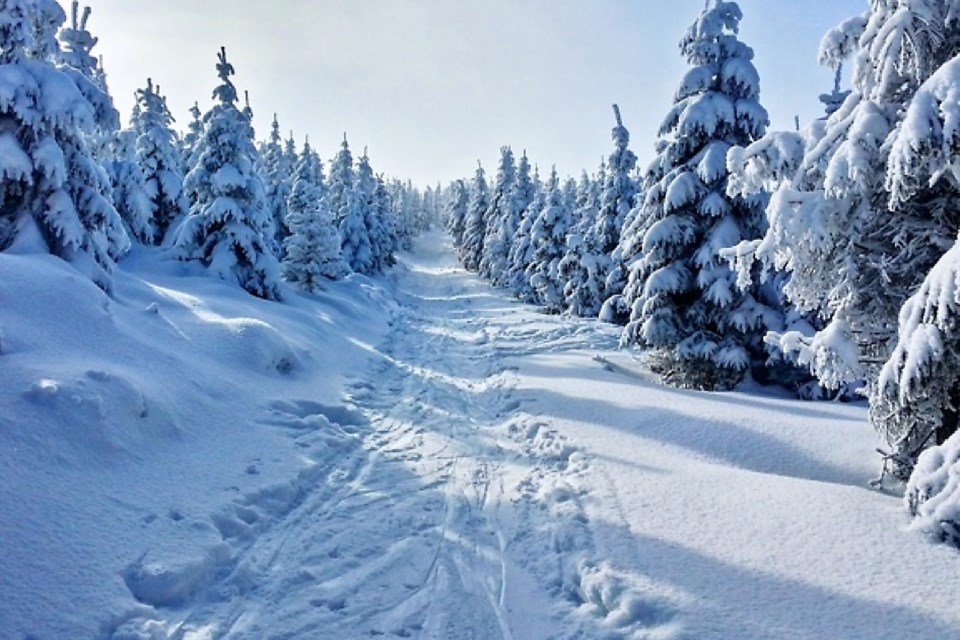Embrace the beauty and wonder of Alberta’s natural areas while learning about rich Aboriginal history. Grab your shoe spikes and bundle up for a refreshing and educational winter hike.
Popular Destinations
- Grotto Canyon Ice Walk – Bow Valley Provincial Park, AB
The Grotto Canyon Ice Walk is a 4.2 km roundtrip hike that is easy enough for kids and beginner hikers. Discover beautiful ice falls while hiking up a frozen creek bed. Crampons are recommended to safely walk on the slippery surfaces. Tours are available, but not required, through Discover Banff Tours who also supply crampons and hiking poles for their guests.
Pictographs drawn in ochre along the canyon wall are thought to have been made between 1,000 and 1,500 years ago by the Hopi people who lived in the southwestern United States. The trailhead for the Grotto Canyon Ice Walk is located on highway 1A between Exshaw and Canmore.
- Zephyr Creek, Kananaskis Country, AB
For more experienced hikers, Zephyr Creek trail in winter conditions is much more difficult than in the summer. It requires packing along some extra equipment, but it is well worth it. This 9.3km out-and-back hike starts and ends with crossing the frigid Highwood River, so bring waterproof waders and extra footwear as well as your regular winter hiking gear.
Pictographs along this hike are thought to have been painted by the Kootenai or Salish First Nations people at least 300 years ago. The trailhead for the Zephyr Creek hike is located off of Highway 541 near the Sentinel Day Use Park.
- Hoodoo Trail and Battle Scene Trail, Writing-on-Stone/Áísínai´pi Provincial Park
Hoodoo Trail and Battle Scene Trail in Writing-on-Stone Provincial Park are both easily accessible winter hikes that explore pictographs and petroglyphs. These hikes are fairly easy and do not required additional shoe spikes on most days.
Writing-on-Stone/Áísínai´pi Provincial Park is the site of the largest collection of pictographs and petroglyphs in the North American Great Plains. It is not known how long ago this rock art was created, but archaeologists believe that Indigenous people have been present in this area for more than 3,000 years.
For more information about rock art in western Canada, check out the Bradshaw Foundation’s website.



